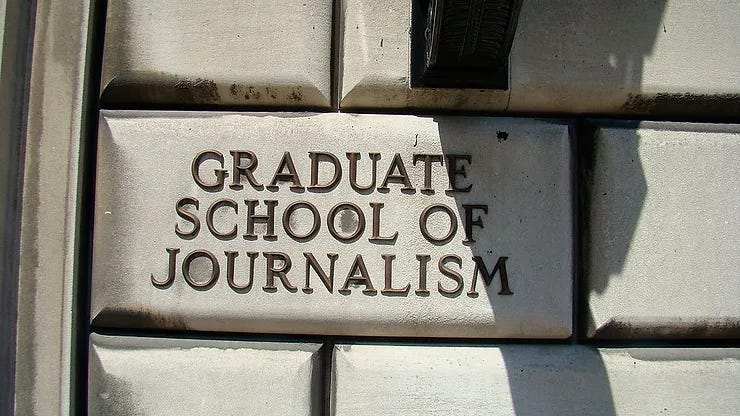Bankrupting Journalism Students
Next year, the tuition is going to be an eye-watering $121,290.00
Last week, the new Dean of the Graduate School of Journalism at Columbia University, Jelani Cobb gave his first speech.
He noted that there were 250 students in the new class.
The title of his speech was “Are We The Problem?”
I think so, but not in the way Prof. Cobb thinks.
Full disclosure — I graduated from the Columbia J-School in 1983. I also taught there for eight years. When I went to journalism school, the tuition was $6,000 a year. Next year, the tuition is going to be an eye-watering $121,290.00
This is more than a bit incomprehensible, yet worth discussing as Joe Biden tosses around the idea of student loan forgiveness.
First of all, having taught at Columbia for so many years (and having also taught at NYU and now The University of Oxford), I cannot for the life of me understand what justifies charging students $121,290 for Columbia’s 9-month course.
At that price, with 250 students in the class, the J-School will net a sweet $30,322,500.00 in revenue for their 9-months at work. What in the world do they spend it on? What do you need to run a journalism program? A room? A few desks? A good internet connection.
Lisa and I have been running our own video journalism courses for more than 30 years. In the old days, we had to provide cameras and microphones and tripods and editing decks for everyone, and even then, it was not THAT expensive. Today, we run all of our classes on iPhones and laptops, which every student already owns. Where are the costs? I don’t get it.
When I graduated from Columbia, I took my first job as a production secretary at WNET/13, the PBS station in New York. I got paid $300 a week, or $15,000 a year, 2.5x the cost of my tuition at Columbia. For a journalism student to have a comparable experience, they would have to find a starting job in journalism that paid $303,225,00
Unless they are being hired as the President of CBS News, I don’t think this is going to happen.
Is there an alternative?
I think so.
At UnPress, we are going to provide training along with a platform and professional and career support for all content contributors. We are going to be a news and information platform, but we are also going to be a holistic community that nurtures our content contributors — and continual education in all aspects of news, journalism, and video production.
If ever there was an industry ready for disruption it’s the journalism education business. And we are going to take a shot.


